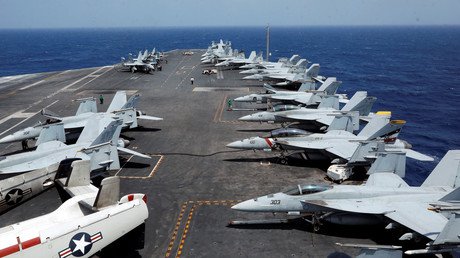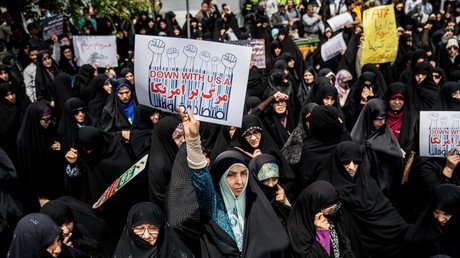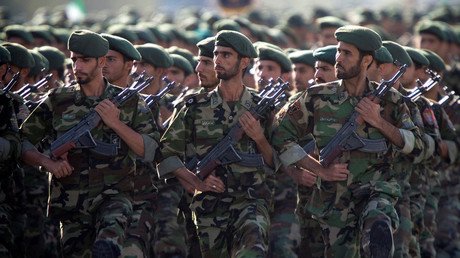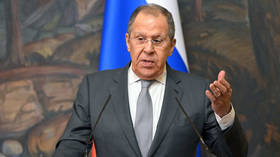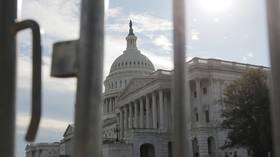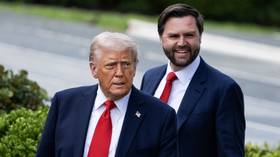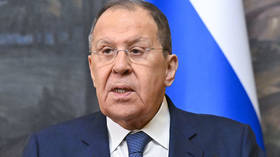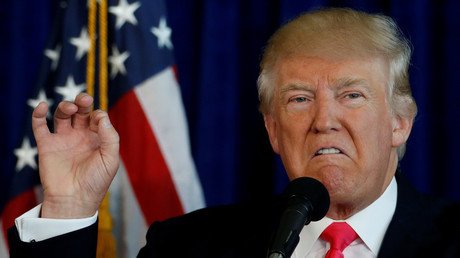US strategy against Iran may lead to lose-lose scenario for everyone
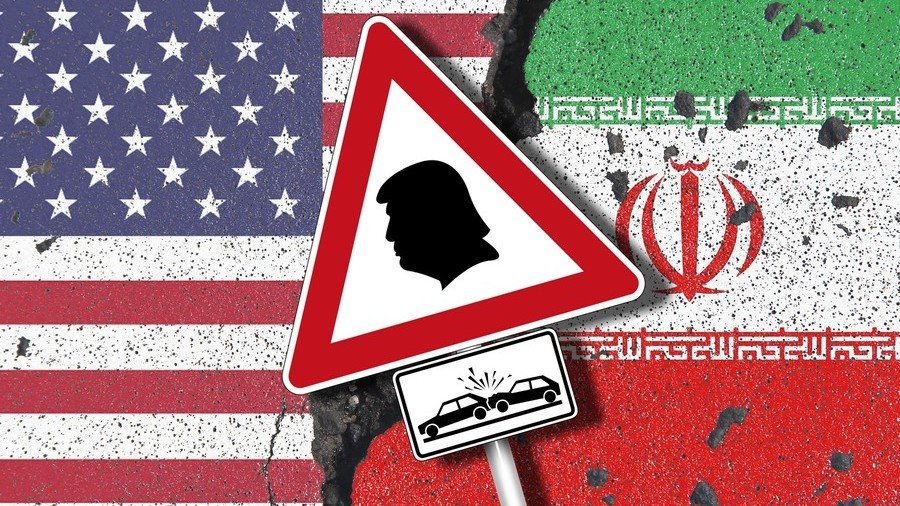
Although the US might not be planning to invade Iran, its belligerent rhetoric shows that it prefers intimidation over dialogue in dealing with Tehran. Such strategy may leave both the US and the world in a deadlock, experts warn.
On Friday, Australian media reported that the US is allegedly “prepared” to bomb Iran's nuclear sites. These reports were then immediately dismissed by the US Defense Secretary James Mattis, who called it “complete fiction.” However, this development still might be troubling as it came against the background of a dramatic deterioration in US-Iran relations, which followed Washington’s unilateral withdrawal in May from the landmark Iran nuclear accord, known as the Joint Comprehensive Plan of Action (JCPOA).
America’s openly hostile rhetoric might well be part of a quite different strategy. “Washington’s belligerent rhetoric is an attempt to intimidate Tehran and force it into entering other agreements, which would involve its missile program or activities in the Middle East,” Vladimir Sazhin, Senior Research Associate at the Russian Academy of Sciences’ Institute of Oriental Studies, told RT.
US President Donald Trump already took all the credit for another landmark international event –his meeting with North Korean leader Kim Jong-un– and went as far as to claim that it was him who actually saved the world from a potentially devastating conflict between Washington and Pyongyang. The rapprochement was, in fact, initiated by North Korea, which first engaged in talks with its southern neighbor early in 2018 while the US was still actively following its “maximum pressure” strategy and then ceased its nuclear testing activity and even closed one of its test sites, in an apparent gesture of good will.
While Trump believes that the meeting, which in fact resulted in little more than a declaration of intent, was the result of his efforts, Washington also apparently remains confident that his “maximum pressure” strategy actually worked. At least, now, Trump seems eager to try and pull off the same deal for the second time – now with the US Middle Eastern arch-rival, Iran.
However, this old-new strategy might be, in fact, inherently flawed. And Trump will have only himself to blame if the US current policy towards Iran ends up in yet another crisis instead of reaching any agreement the US leader apparently seeks to strike.
Throwing stones in one’s own garden
The latest major crisis involving the Iranian nuclear program occurred between 2011 and 2012. It saw the world frozen in anticipation of a potential strike against Iran by the US or its allies, such as Israel. At that time, Iran, which was vehemently opposed to making any concessions on its nuclear program, was eventually slapped with tough sanctions that played their part in bringing the Islamic Republic to the negotiations table.
Now the situation is, however, entirely different. It is not Iran that is a trouble maker nowadays, it is the US that, at Trump’s whim, unilaterally pulled out of the landmark deal, which Iran has been actually complying with even since it was struck in 2015.
“Trump is now all alone in his decision to withdraw from the deal,” Sazhin said, explaining that “even some parts of the US establishment do not support this decision.”
The US European allies, who were in favor of imposing sanctions against Iran six years ago, now sharply criticize US actions and have vowed to keep the deal. Trump is unlikely to find any support for his “maximum pressure” policy in the EU, not to mention the nations of South Eastern Asia, which currently are developing economic ties with Tehran, Sazhin said.
The US is probably in the weakest position, in terms of exerting pressure on Iran, since 1979, while Tehran is much stronger now as it enjoys indirect if not open support from many international actors when it comes to the nuclear deal, Vladimir Batyuk, a military analyst and a senior research fellow at the Institute for US and Canadian Studies, told RT. He also said that Trump’s unprecedentedly hostile rhetoric against North Korea, which was then followed by a rapid change of tone and praise for Kim Jong-un, has led to a situation in which any new rants would be perceived as empty threats.
Batyuk’s words were echoed by Konstantin Blohkin, an analyst at the Center for Security Studies at the Russian Academy of Sciences, who also said that the US is unlikely to bring anyone to the negotiation table through intimidation, as its threats are now perceived as “non-existent.”
“He [Trump] already threatened North Korea but took literally no action to deliver on those threats,” Blohkin told RT, adding that “no one takes him seriously now.” Under such circumstances, the steps taken by Trump are nothing more than “propaganda and a PR stunt accompanied by warlike rhetoric,” Sazhin said, adding that the US is unlikely to make Iran cave in on such issues as its missile program or its Middle Eastern policies.
Sanctions may lead to economic stagnation, but not to revolt
Belligerent statements, however, are far from being the only weapon in Trump’s arsenal; he is also preparing to use another of Washington’s favorite policy instruments – sanctions. Earlier this month, the US already vowed to ramp up pressure on Iran’s energy sector. Washington is planning to hit Tehran by “reducing to zero its revenue on crude oil sales,” with sanctions going into effect in November.
While the move is not likely to affect some of Iran’s trading partners, such as South East Asian nations, Russia or even Turkey, which recently said it would not abide by the US oil sanctions against Tehran, it might well still force European companies, which continue to enjoy strong economic ties to the US despite the ongoing trade dispute, to abandon their trade with the Islamic Republic, out of fear of secondary sanctions from Washington.
Sanctions imposed back in 2012 severely crippled the Iranian economy and, according to Sazhin, became one of the factors that helped ‘moderate’ President Hassan Rouhani come into power. Now, “Trump expects the sanctions and new economic hardships to make the Iranian people revolt and topple the government together with the entire political system,” the analyst said, adding that the US president is “wrong again” as he “does not have not a vaguest idea” of the real situation in modern Iran.
An economic downfall might indeed weaken Rouhani’s government but it is unlikely to lead to any system changes. Instead it will strengthen the Iranian president’s rivals – Iranian hardliners, who harbor extremely anti-American views and who would make any potential negotiations impossible.
“The hardliners in power could drastically deteriorate relations between Iran and the US, as well as the West in general,” Sazhin warned. He also said that they could build up Iran’s presence in such countries as Syria, Yemen or Lebanon, provoking further tensions that could lead to a major crisis in the region and become a source of concern to the US allies there - Israel and Saudi Arabia.
As a result, Trump’s reckless decisions could in fact put the region or even the whole world on the brink of a major conflict. Rouhani has actually already warned the US that a military confrontation with Iran would be “the mother of all wars.”
Military operation against Iran would be a ‘disaster’
The Washington administration might actually view Iran as a suitable target for yet another US military adventure. After all, the Islamic Republic does not yet possess any nuclear weapons (unlike North Korea) and thus cannot retaliate in a manner that would theoretically prevent the US from launching a strike against it. However, such calculations might, in fact, be wrong.
“The total number of the Iranian Armed Forces, including the Revolutionary Guard Corps (IRGC) might well amount to between 600,000 and 900,000,” Sazhin said, adding that the IRGC virtually controls some 25 percent of Iran’s economy and has significant resources at its disposal. Apart from that, Iran also has so-called militia forces, consisting of ordinary people, who regularly undergo training under the IRGC control – and their numbers are measured in “millions.”
“Any ground operation against Iran would be pure madness,” Sazhin warned, adding that any air or missile strikes would “not solve the problem” but only further exacerbate the situation by rallying the nation around its government – and probably the most hardline part of the establishment.
Besides, Iran already has missiles with a range amounting to some 2,000 kilometers, which is enough to hit US bases in the region as well as reach Israel, in particular. Iran might actually be able to retaliate against a US strike after all.
Think your friends would be interested? Share this story!
